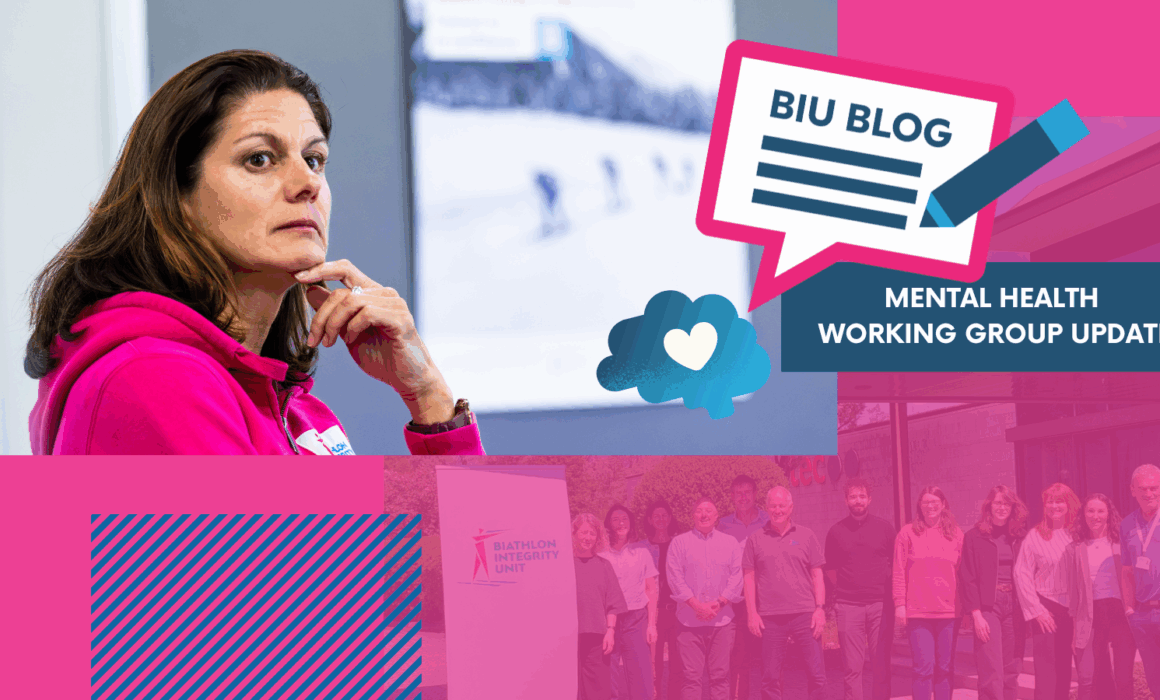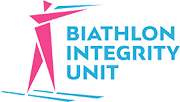Mental Health Working Group update
When we launched the Mental Health Working Group together with the IBU back in January, our goal was simple but important: to make mental health a genuine priority for athletes, coaches, and support teams.
Since then, it’s been inspiring to see how far the group has come. Under the guidance of Greg McKenna, Head of the BIU, it’s grown into a strong team of 10 passionate members, each bringing their own perspective and commitment to improving wellbeing across our sport.
These include those with expertise in sports development, education, sports psychology, medicine, anti-doping, coaching and, importantly, an active athlete representative. Most of the group’s members are also former athletes, so we can count on their in-depth knowledge of the sport.
Meetings have been organised and coordinated, both online and in person in the form of a workshop at the IBU headquarters earlier this summer. A range of documents is being prepared, including a Wellbeing Charter and Mental Health Strategy and Policy.
To bolster the team, we’ve also organised an internship, employing a student from the Master of Arts in Sports Ethics and Integrity programme to help with our research into the existing status of mental health support in our member federations.
Of course, the work of the group would be pointless if no one knows about it, so, in my capacity as the BIU’s Prevention Manager, I’ve personally been leading a communications drive to raise awareness of mental health issues in biathlon, which we’ve called ‘Summer of Mental Health’.
Highlights of the campaign so far have included:
· A podcast interview on ‘Maintaining Mental Health’ with sports psychologist Andrea Appierto who shared his insights on the evolving role of mental health in biathlon. The role of a sports psychologist in the wellbeing of athletes is about more than just maximising performance, Andrea said, adding: “You have to let the athlete understand himself better and know himself better… It’s not only about the performance, but how to manage the way you live your sport”. Click here to listen to the interview.
· A podcast interview with Jacques Jefferies, a practising elite-level biathlete competing for Great Britain, on his personal campaign for better mental health in the sport, which included conducting a survey among almost 700 of his fellow athletes in a bid to understand better the mental health challenges they face. Over 70% reported having faced challenges, and 95% said they lacked knowledge on the topic. Since then, Jacques has used the survey results and personal experience to push for more education, accessible resources, and open conversations in the biathlon community. Click here to listen to the interview.
Still to come is an interview with Alan Currie, a member of the working group and an external expert and psychiatrist with significant experience in mental health support to athletes.
Among other topics, Alan will address:
- why athletes might develop mental health concerns (risk and protective factors)
- what kinds of concerns are presented (the range of symptoms and conditions)
- and what help is needed (screening, access to support, time away, return to play etc).
The working group programme will continue to be adapted according to the needs of biathlon, reflecting the specificities of an endurance and individual sport.
If you, or anyone you know in the biathlon family, is affected by these issues, you can contact the BIU in confidence at:
Lucie Rothauer
BIU Prevention Manager


